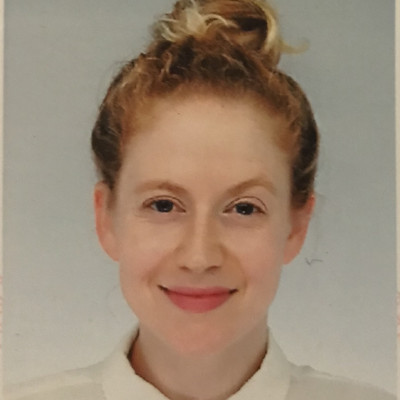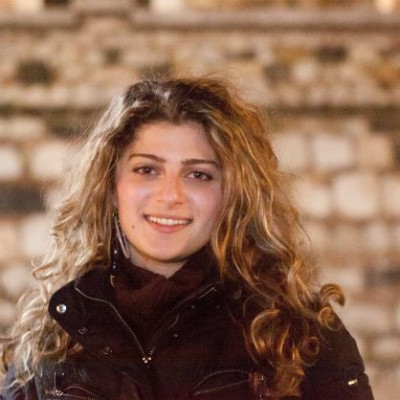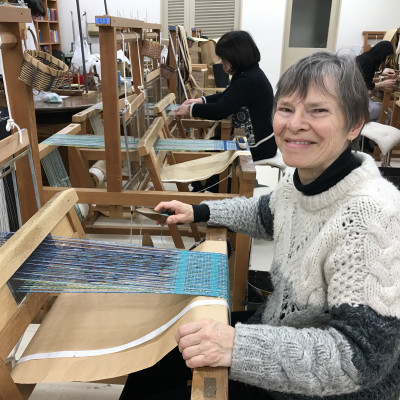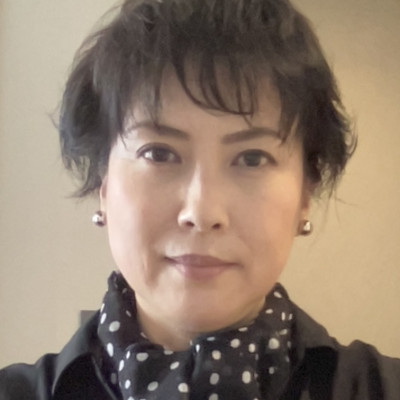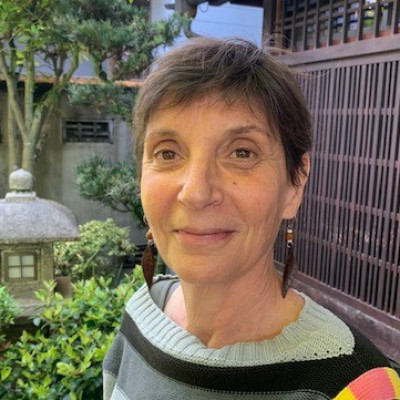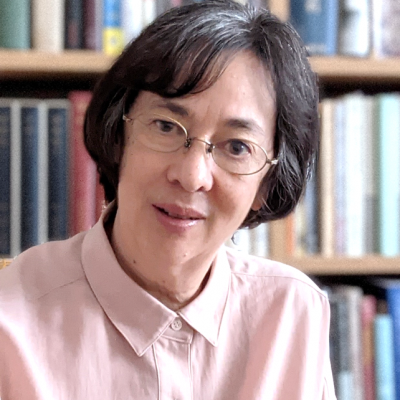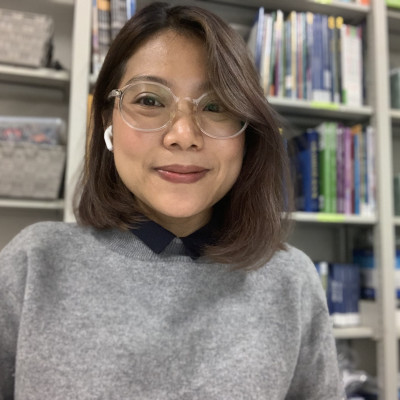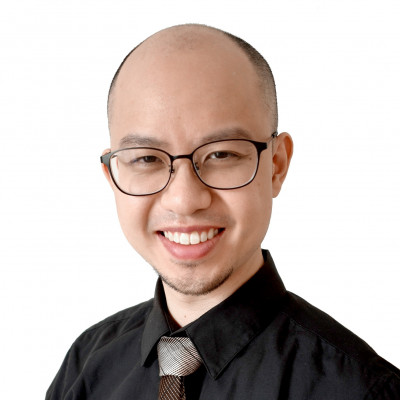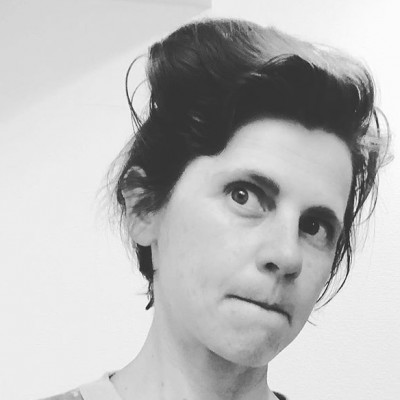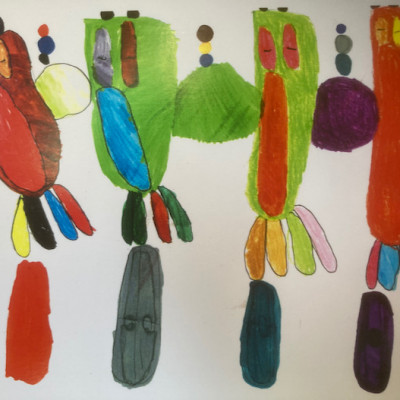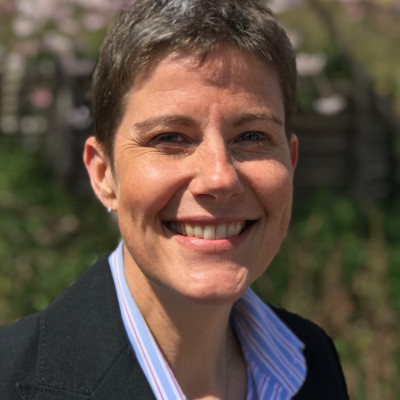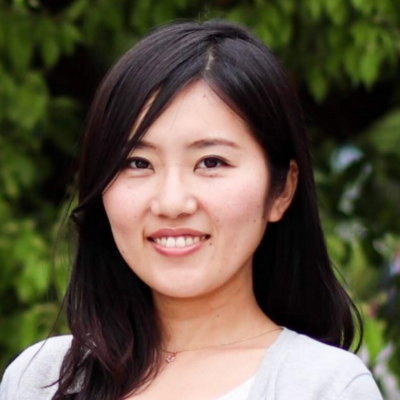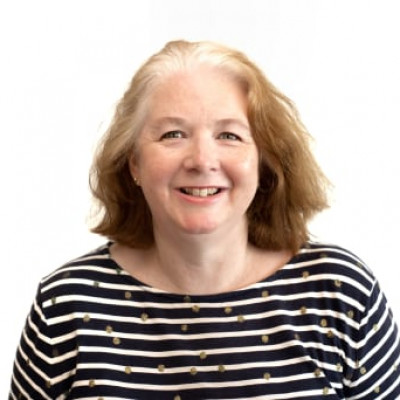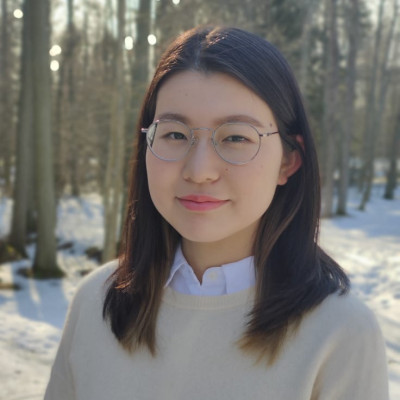Sessions / Location Name: Room K
Virtual Location
Virtual: You cannot enter virtually via this page. Click on the titles of individual presentations or go to the Live Page
Barriers to Finding a Home in Japanese Academia: International Students and Academic Harassment #3131
Academic harassment, or akahara, is bullying by a senior faculty member, instructor, or research supervisor. It involves power-laden relationships where a less-privileged individual is unfairly prevented from researching, teaching, or in the case of students, graduating. Akahara cases are in no way unique to Japan and it is unfortunately very easy to find complaints from junior faculty and students from around the globe. However, Ogoshi (2001) and Takeuchi et al. (2018) claim many Japanese universities have a rigid hierarchical system that fails to properly supervise and penalize abusive senior faculty and researchers. This system creates an environment where akahara can thrive.
This bilingual and interactive presentation is about the experiences of international graduate students who have experienced akahara at their Japanese university. This group of students is at particularly high risk for akahara due to unfamiliarity with the Japanese university system, a lack of community support, or still-developing Japanese language skills (Oka, 2017). After clearly defining akahara, this presentation examines literature about akahara in Japan. It then critically explores recent initiatives by Japanese universities to address akahara. Lastly, the presentation encourages audience discussion to brainstorm ideas to support international students and decrease the problem of akahara at universities.
Home is Where You Feel Safe and Supported: Vulnerabilities and Empowerment of Foreign Women in Disasters and Crises in Japan #3132
Disasters and crises are becoming the norm. Disasters and crises have a social nature and the concept of “home”, both as an infrastructure and a relational concept, is crucial to address disaster challenges. In particular, the association of women with the image of “home” often grounds discourses of women as weak and vulnerable. Are women really weak and confined to the domestic space, or is it a narrative that teaches them/us how they/we are vulnerable? In her PhD at Kyoto University, Irene Petraroli analysed women’s vulnerabilities in disaster preparedness in Kyushu and Kansai, Japan. She found that some aspects of female vulnerabilities and empowerment overlap in the home environment: women are expected to provide for other family members, but they are given insufficient information and lack decision-making power at the local and governmental level. Nina Hakkarainen founded Foreign Women’s Association Paruyon in 2007. Paruyon’s goal is to support foreign women by providing opportunities to meet other foreign and Japanese women, receive and exchange information, and build a community, “a home” to turn to in times of crisis. The pandemic has highlighted vulnerabilities foreign women face in Japan. It has increased their isolation as well as their dependency on their spouses/partners/children. Nina will talk about these vulnerabilities and share her own journey of building safe spaces, “homes away from home” for foreign women in Japan.
The presentation will be in English but the presenters will also accept questions in Japanese.
Growing Old at Home in Japan: Issues that Long-Term Non-Japanese Residents are Facing [Atelier – discussion sur le thème « Vieillir au Japon : Les problèmes auxquels sont confrontés les résidents retraités non japonais » (en anglais – français – japonais)] #3127
This round-table discussion will welcome non-Japanese residents who have made Japan their home and plan to spend the rest of their lives here together with professionals and volunteers working in elderly care. An international group of Kyoto residents plans to set up a support network and would like to reach out to more people, especially speakers of languages other than English or Japanese, and to find out the issues that people are dealing with and their concerns. The round-table discussion will be in English, Japanese, and French and will cover topics such as: i) living on a pension, ii) physical and mental health care, iii) social activities, iv) the kaigo 介護care system, v) examples of different types of care homes, vi) care services, vii) home hospice systems, and other topics that participants wish to raise. We want to work together to gather and share information, such as websites and books, and provide support for one another through this initial discussion and the network we create.
Beyond the Label(s): An Educator’s Multilingual, Neurodivergent and Gender Identities #3128
In this presentation, I will introduce myself through three labels: multilingual, neurodivergent, and queer identities. First, I will share my background as a multilingual growing up in the Philippines: a country with more than 100 languages and dialects. The second label is my neurodivergence. I would like to share how a neurodevelopmental disorder affects my life not only as an educator but also as a minority living in Japan. Finally, I would like to explain my gender identity and how it is perceived in Japan and the Philippines. Living with these labels and identities in a foreign country like Japan, I aim to present how a person with any or all of these labels can overcome the challenges of acceptance in order to find home in a society that can easily identify someone who is "different".
Four Perspectives on Home: Seeking, Creating, and Sharing Our Safe Spaces #3129
In this session, four panelists will discuss what experiences and resources have helped them develop skills at creating and maintaining safe, welcoming, home-like spaces.
Jackson Koon Yat Lee: I will share my personal experience as a Hong Kong Canadian living in Japan and the ever-changing meaning of home throughout my life, as well as how the journey has led to my on-going engagements in DEI-related topics in professional and social lives in hopes to demonstrate solidarity and inclusion for others with blurred visions of home.
May Kyaw Oo: In my talk, I will discuss the fluidity of identities connected to the concept of displacement due to political unrest, and how existing in a liminal space impacts a person’s identity as a person, as an educator, and as a researcher. I will also discuss the importance of having an online community where one feels safe and respected when practicing self-disclosure and expressing opinions.
Jenny Morgan: I will share how my concepts of home and community have shifted throughout my life due to multiple layers of identity categories that have involuntarily worked to position me at times as an insider, and at others, an outsider. I will discuss how this forced positioning and fluid and flexible perspectives inform how I co-create with learners a sense of home in their classroom communities of practice.
Gerry Yokota: Most university students are at a transitional stage of life, many leaving home for the first time and/or uncertain where they are headed after graduation, and many English language educators are in similarly liminal positions. I will demonstrate how I use applied cognitive linguistics, especially attention to the power of metaphor, to facilitate classroom discussions about shifting experiences and perceptions of home and community, with reference to cultural expressions found in film, music and poetry by or about exiles and refugees.
Singled Out: Societal and Structural Barriers Facing Foreign Women in Japan Singled out 日本で働く外国人女性が直面する社会的・構造的な障壁 #3130
Ten years on from the 2012 Global Summit of Women in Tokyo event, where former PM Shinzo Abe proclaimed his commitment to promote “a society where women can shine,” Japan’s ranking in the WEF’s annual Gender Gap Report has tracked a drop from 101st place (2012) to its current 120th ranking (2021) out of 156 countries. News coverage and academic circles continue to debate the uneven progress that is being made for Japanese women in contemporary Japanese society, but there is little attention paid to the lived experiences of foreign women who have made the decision to make Japan their home. In this roundtable, four female, long-term residents of Japan, discuss the social and structural barriers that obstruct their efforts to live in, and contribute to, their adopted country. First, Kristie Collins presents how conceptions of Japan as ‘home’ have shifted for some single foreign women over the pandemic, and how this may influence their personal and professional futures. Next, Herb Fondevilla shares her experience as an academic in a profession that favors and is dominated by white males compounded with issues related to native-speakerism and racial stereotypes. After that, Tanja McCandie discusses her experience navigating the academic system, embedded with gender barriers that affect females, but even more so for mothers and other primary caregivers. Finally, Antonija Cavcic explores the issues faced by married binational LGBT couples whose legal and legitimate marriages abroad are not recognised by Japanese law. The session will conclude with Q&A discussion to address all these groups and more who call Japan home, but remain “singled out”.
安倍晋三元首相が「女性が輝く社会」の推進を宣言した2012年の「グローバル・サミット・オブ・ウーマン in Tokyo」イベントから10年、WEFが毎年発表する「ジェンダー・ギャップ報告書」における日本の順位は、156カ国中101位(2012年)から現在の120位(2021年)へと下落を辿っている。現代の日本社会で日本人女性がどのような状況に置かれているかについては、報道や学術界で議論が続いていますが、日本を故郷とする決断をした外国人女性の生活体験については、あまり関心が持たれていないようです。このラウンドテーブルでは、日本に長期滞在している4人の女性が、自分たちの国で生活し、貢献しようとする努力を阻む社会的・構造的な障害について議論します。まず、クリスティ・コリンズは、パンデミックによって、日本が「故郷」であるという概念が、独身外国人女性にとってどのように変化したか、また、このことが彼女たちの個人的・職業的将来にどのような影響を及ぼす可能性があるかを説明します。次に、ハーブ・フォンデヴィーラは、白人男性が支配的で、ネイティブスピーカーや人種的ステレオタイプに関連する問題が複合的に存在する職業における学者としての経験について語ります。その後、タンヤ・マッキャンディが、女性、特に母親や他の主要な介護者に影響を与えるジェンダーの障壁が組み込まれた学問体系をナビゲートする経験について説明します。最後に、アントニア・カブシクは、海外で合法的に結婚した二国間のLGBTカップルが、日本の法律で認められていないために直面している問題を探ります。セッションの最後には、日本を故郷としながらも「排除されたまま」であるこれらのグループやその他の人々について、質疑応答が行われる予定です。
Futoko: Survivors’ Stories of School Non-Attendance サバイバーが語る不登校ストーリー #3138
I was aware that schools can be painful institutions, but when my son stopped attending his local junior high, it threw us both off the edge. We are not alone. Futoko (school non- attendance for over 30 days a year) is difficult for parents, teachers, and the non-attenders themselves, as school participation has a long-term impact on young people’s lives, and unlike independent adults, minors lack the option of just switching environments. While there are no accurate international comparisons, school refusal affects a significant number of young people throughout the affluent world. In Japan, the percentage of non-attenders has doubled over the past 25 years, with over 1% of elementary and 4% of junior high age children non-attending in 2020.
In this panel discussion, futoko survivors - parents and young people - share their own stories of falling off the edge, finding a toehold, and creating new supportive spaces. Speakers span two generations of futoko experience: founders of an early local parents’ group, a former non-attender supporting futoko and hikikomori youth, and a parent who started an alternative “free” school. Keeping system-wide issues in mind, we will focus on sharing our insiders’ perspectives in the hope this contributes to more belonging, more safety, and more fun on the edge.
「学校」の生きづらさを認識していたが、息子が学校へ行けなくなった中2の秋、親 子とも突然暗闇に落ちたような気持ちだった。決して珍しいことではない。学校参加は 子どもの生涯に長期的な影響を与え、また未成年は生活環境を容易に変更できないとい う現実はあるため、「不登校」が多くの保護者、教員、また本人にとって難しい課題で ある。正確な国際比較は困難だが、裕福な国々において「不登校」は多くの子どもが関 係している事象だ。文科省の統計によると日本では過去 25 年間、不登校生徒数は大凡 倍増し、2020 年度では全国の小学生の1%以上、中学生の4%以上を占めている。
今回のパネルでは、保護者や本人を含め不登校を生き延びたサバイバー数名が自らの ストーリーを共有する。それぞれが、edge(周辺)から落下、また攀じ登り、そして仲 間を支える居場所を創っている。登壇者に2世代の不登校経験を含み、親の会を設立し た保護者、体験を生かし支援のプロになった当事者、フリースクール・居場所を設立し た保護者など。教育システムの課題を念頭に、当事者の観点を共有することによって、学校に馴染みにくい若者が居場所を感じ、より安全に楽しく生きるヒントを一緒に探る。
Moderator: Melisanda Berkowitz
Panelist details: 元当事者で不登校・ひきこもりしている人の支援ワーカー 澤井直樹 愛知県岡崎市 NPO法人コネクトスポット 介護福祉士兼公認心理士
Formerly hikikomori, now a professional support worker Sawai Naoki Licensed psychologist, Certified care worker NPO Connect Spot, Okazaki City, Aichi
保護者の立場、発達心理の専門家として: 大久保義美 愛知みずほ大学 (発達心理)ニュータウン親の会世話人
Parent, psychologist, peer supporter Okubo Yoshimi Aichi Mizuho University (Developmental Psychology), Certified school counselor, New Town Oya no Kai leader
保護者、不登校の子どもと家族への支援 森美智 名古屋市中区金山、NPO法人ハピーラボ 理事長
Parent, NPO support for futoko children and their families Mori Michi Chair, NPO Happy Labo, Kanayama, Nagoya
Gratidoodle #3139
Positive psychology offers several approaches individuals can take to raise their own levels of well-being. In this short session I’ll demonstrate a method I stumbled across to find my own home in happy.
Where’s Home for Rural Japanese Women and Their Language on the Move? #3140
Educational disparities exist in Japan according to socio-economic status, region and gender (Matsuoka, 2019). In terms of regional disparities in particular, Kagoshima Prefecture has the lowest rate of students entering four-year universities in Japan, and there is a large gender gap. I myself am a woman from Kagoshima who was once opposed by my parents to going to university or studying abroad, but after going through various processes, I completed my Master’s in the UK and am now studying in a doctoral course. Where, or when, do those from rural areas who go on to university or study abroad, overcoming their parents' opposition, eventually find home? Will they be able to remain themselves of the same culture and identity after returning home? And while learning a foreign language or studying abroad may broaden both one's career path and cultural horizons, at the same time, will it not cause them to suffer from gaps with their local culture? In this presentation, I will attempt to answer these questions through my previous interviews with women from Kagoshima Prefecture and my own autoethnography. I would also like to make this an interactive session, with time for participants to share their own stories.
Thoughts After Completing the Parent-Child Study Overseas Program - Home of My Own 親子留学を終えて思う〜自分の家〜 #3142
カナダからの帰国子女として人生の前半を過ごした私ですが、約3年の滞在では通訳が出来るほど英語が上達して帰国した訳ではなかった。日本語も英語も半分半分 - 考え方も行動も和洋折衷。しかし、自己形成に大きく影響を与えたカナダでの経験は、その後の人生において世界の人達と英語で接して生きていきたい、そして再び海外で生活したいという願望へと繋がっていった。しかし、月日が流れ日本での生活が長くなるにつれ、英語を話す機会も減り、いつしか西洋国で子育てをしたいという想いなども現実離れしていった。
そんなある日、長男のアメリカ大学進学を機に、次男と2人でバンクーバー親子留学をしてこないか?と夫が提案してくれた。チャンスを取ることと現実の狭間で答えに迷いはあったものの、この機を逃せば次は無い。挑戦してみることを決めた2018年。
9歳になる次男にとっては寝耳に水。そこから始まった親子奮闘劇。
いざ渡加してみると、不安や恐怖心から頑なに英語世界に飛び込む事を拒否した息子。幼い頃、父の仕事でカナダへ渡った時の自分とは真逆の反応。そしてプライドが邪魔をし日本へも帰りたくない息子... どこへ行けばいいのか...世界規模で居場所を失った様に感じた。どうやって彼を救えばいいのか途方に暮れた。もがき苦しんだ期間、約半年。なんとか乗り越えた。結果3年半を過ごし帰国した今、息子はカナダに留学できたことを本当に喜んでいる。
日本とバンクーバーを行ったり来たりした3年半。時間も気持ちも切り替える事に慣れていった。民族と文化の多様性を深めるカナダで過ごしたことにより、様々な国の人が様々な経歴や理由をもとにカナダに移住し調和して生きているのを見て来ました。自分の家はどこか?自分の居場所はどこか?究極を突き詰めると、今を幸せに生きているのならどこだっていいじゃないか、と思う様になった。それくらいフレキシブルに好きな場所で好きなことをする為に生きている人が世界には沢山いる。そういう視野を持つだけでも自分の世界観は格段に広がるのではないでしょうか?このプレゼンテーションでは、その様なことを共有できれば幸いです。
I spent the first half of my life as a returnee from Canada, but I did not return home with my English improved enough to be able to interpret during my three-year stay. Half Japanese and half English - a blend of Japanese and Western in my thinking and behavior. However, my experience in Canada, which had a great impact on my personal development, led me to a desire to connect with people around the world and to live abroad again in the future. However, as time went by and I lived in Japan longer, I had fewer opportunities to speak English, and my desire to raise my children in a Western country became less and less realistic. Then one day, my eldest son was about to enter university in the U.S., “why don’t you and second son go to oversea study (Canada)?” My husband had not forgotten my desire wanting to raise my children abroad! Although I was torn between taking a chance and the reality of the situation, I knew that if I missed this opportunity, there would be no next time. We decided to give it a shot in 2018. For my second son, who was 9 years old at that time, it was a bolt from the blue. The parent-child struggle began there. When it came time to come to Canada, my son stubbornly refused to dive into the English-speaking world out of fear and anxiety. His reaction was the complete opposite of my own when I first went to Canada for his my father's work in my childhood. I offered my son an option to return to Japan, but my son’s pride got in the way and he didn't want to go back to Japan either... Where to go... I felt like I lost my place in the world. I was at a loss as to how to save him. We struggled for about six months but we managed to get over it. Now that we have returned to Japan after spending three and a half years and as a result, my son is really happy that he was given a chance to study in Canada. During our stay in Canada, we went back and forth between Japan and Vancouver. From that experience, we got used to switching time and feelings. Having spent time in Canada, a country that has deepened its ethnic and cultural diversity, I have seen people from many different countries immigrate to Canada and live in harmony based on various backgrounds and reasons. Where is my home? Where do I belong? Ultimately, I came to think that it doesn't matter where you are, as long as you are living happily in the present. There are many people in the world who live to do what they want, where they want, with that much flexibility. I believe that just by having such a perspective, one's view of the world will expand dramatically. We hope to share something like that in this presentation.
Who am I: A Returnee’s Search for Cultural, Linguistic and Occupational Identity #3143
The presenter’s life has been full of identity crises and self-doubt. But after five decades of struggle, she has found peace and belonging. Cultural and linguistic identity began at age six when due to her father’s job, the presenter moved from Japan to Canada and the United States. As her language ability evolved from monolingual Japanese to fully bilingual, she struggled with cultural identity especially after facing racism from Americans and Canadians. When she returned to Japan at age 13, she faced even more discrimination as a returnee, complicating her identity. After 15 years of not fitting in anywhere, she finally found “home” at a private high school that accepted returnees (Doshisha Intl High School). There, she learned that being different made her unique. As an adult, she struggled with occupational identity in her 20s and 30s after working in the media and NGOs and suffering health problems due to overwork. She began teaching English at age 35 and found her true calling. When she obtained her Masters degree in education at age 42, she feared she wouldn’t get any university work due to that ageism and lack of experience. But employers appreciated her past work experiences, and she now teaches English, journalism, translation skills and interpretation skills at four universities in Tokyo. This presentation will discuss how the presenter overcame racism, ageism and conclude that being atypical can be a strength.
Female Non-WEIRD Students’ Experiences in Japan #3144
The number of students coming from abroad to attend Japanese universities has increased significantly over the last 10 years following government initiatives regarding globalization. Many of these students come from non-WEIRD (Western, Educated, Industrialized, Rich, and Democratic) countries and engage in English-medium learning at the graduate level. This presentation will discuss the present situation in Japan regarding international students, and the flow of students globally, with a particular focus on female students. Then the experiences of 3 female graduate students studying at a Japanese national university that focuses on STEAM subjects will be examined. The participants come from diverse backgrounds, and semi-structured interviews were used to explore their experiences in their new environment. The narratives were analyzed using grounded theory and the discussion of the results explores the push factors that encouraged the participants to leave their home countries, and the pull factors that attracted them to Japanese higher education and their new homes. Additionally, whilst acknowledging the problems female international students have in Japanese universities positive aspects of studying in Japan will also be highlighted.
Finding Home as a Life-Long Learning Process - My Journey in Finland #3145
As a Japanese woman and an immigrant, living in Finland and working at an NGO, I would like to share my journey of finding a place where I feel I belong to as part of a life-long learning process. Also, I have been dealing with mixed feelings from having to establish a place where life goes on in Finland while not being able to physically be at the home where my family lives in Kyoto.
I see my journey in Finland as a learning process, because it involves continuity such as understanding the country’s system, culture, learning the language, making new friends and finding work. It has been a process for me to increase my feeling of belonging alongside finding people who I care about and who are supportive of me.
I would like to also emphasise the importance of taking care of myself in a rapidly changing world, where in the middle of chaos, I seek a state of mind that can focus on positive things and reflect on things to improve on. This ability has become crucial to balance a life where the physical home exists somewhere outside of where I currently am.
I hope to have active discussions with participants and exchange thoughts on the learning processes behind finding one’s own home.
